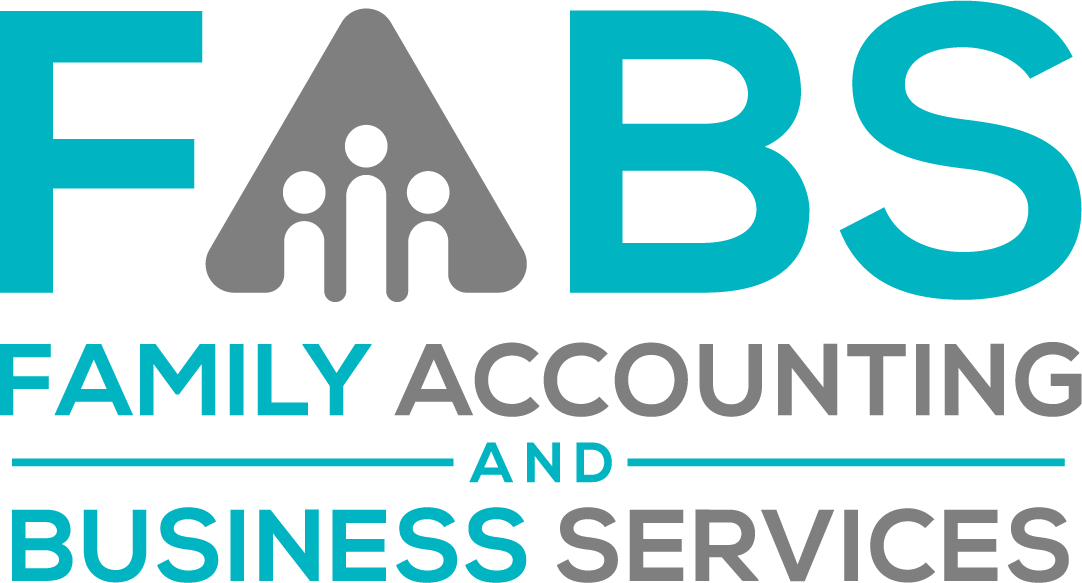Click the links below to join, contact FABS or check out our fees. Read further for some tips on what to prepare for your tax return.
Please note – We perform individual tax returns via email correspondence to keep costs low for the client. Phone call bookings are available to discuss any queries or clarify any questions you may have. The phone calls do attract an additional fee. Please refer to our indicative pricing below. Face-to-face consultations are reserved for our business clients only.
We encourage new clients to engage FABS for BAS and Tax services as a combined package. Our experience shows, our quarterly bookkeeping/BAS reviews encourage regular client communication, thus producing better business practices, reliable cashflow and successful tax planning.
For clients preparing their own BAS, we are always happy to help with your tax planning and other taxation obligations. However, we gently advise we must prioritise time-dependant tasks to our full-package clients should there be any deadline or demand issues.
FABS is a small firm commended for their approachable, consistent and personable services.
STEP 1: Fill out our Engagement Form
CLICK on the above header to fill out our online engagement form if you wish to engage FABS for your Tax Services. This form is to be read in conjunction with our Terms of Engagement below. For business clients, we will be in touch directly after receiving your form.
STEP 2: Register Your Interest To Receive Your Tax Booking
CLICK on the above header to fill out our Expression of Interest form. This will register you next in line as we operate on a first in – first served basis. We will reply with an estimated booking time and quote followed by tailored questions to achieve the best tax outcome.
Click to read our Terms of Engagement (TE) document before proceeding with any new services with FABS. The engagement form confirms you acknowledge this document.
Click above to see our current basic pricing structures for individual tax returns, small business returns, BAS services and additional services such as bookkeeping or strategy meetings.
Business – Sole trader, partnership, trust or company?
- Contact us by phone, email or Facebook with information about your business, structure and services required.
- In reply, you will be invited to complete our engagement form an indication of our fees using the above pricing list.
- Fill out the engagement form by clicking above and invite FABS to be your new Tax Agent via your Business Portal (refer Point 5 below).
- Upon return of the form, we make contact to get the process started in a way that suits you and your schedule.
- IMPORTANT TO NOTE: For entities other than sole traders, you must have a registered myGov ID and have access to your ATO Business Portal before changing accountants. Google “Client-Agent Linking” for more information or click here for a fact sheet on how to invite FABS to be your new Tax Agent.
Employee – Individual Tax Return (ITR)?
The process is super simple.
- Click on the link above to start filling out the Engagement and Expression of Interest Forms.
- The form includes all fees and charges – No surprises!
- Appointments are reserved for business holders. If you do not have a business, we will prepare your tax return via email correspondence or phone booking.
- You will receive a simple email checklist and Questionnaire to provide us with all information required. More information below.
How to prepare for your Tax Return booking
Important – If you process your return too early, certain information may not be available yet. You must tell us about all income you’ve received to avoid delays or amendments to your tax return.
INCOME
- Note how many jobs you’ve had throughout the year so your accountant can check all wages are available.
- If you received any allowances on your payslips, please let us know as they may open up related deductions such as overtime meals, motor vehicle, uniform, etc.
- Notify us of any Centrelink assistance, Family Tax estimates or Government grants
- Check your bank accounts for any interest received. Look at all bank account statements on 30th June and look for the full interest received year-to-date on each account.
- Did you play with crypto currency? We will need all the reports from your crypto management software showing ALL purchase dates/costs and sale dates/costs.
- If you own shares and received dividends, please provide the statements according to the date paid. Eg. If it was declared 30th June 2024 and paid 14th July 2025, this will be included in the tax return for 2025.
- If you bought/sold shares, please provide all documents relating to each buy and/or sell.
- For people with investment properties, we will need:
- The statement from your Real Estate property manager OR, if self-managed, the rent and recoveries received during the year.
- Council rates, land tax, body corporate fees and utilities including water, electricity and gas.
- Interest paid on mortgage during the year.
- All other expenses paid on your property such as new improvements, assets, repairs & maintenance, advertising, legal fees, pest control, pool & gardens, cleaning, smoke alarms, stationery, postage, security costs, etc.
- Report from a quantity surveyor showing depreciation, if applicable.
- For new clients – please provide the prior year’s depreciation schedule AND the first mortgage statement to show any mortgage insurance and other borrowing costs if less than 5 years ago.
- For people with a business that provide their information once a year, we may need (in addition to deductions below):
- Access to your software OR:
- Total income received during the year.
- A summarised list of your expenses you’ve bought for the business.
- If you’ve bought new assets, such as a vehicle, please provide an invoice and finance paperwork (if applicable).
- Stock on hand value at 30th June.
- Provide details for any other income? Such as sale of property, managed funds, trust distributions, employer lump sums, termination payments, income protection insurance, annuities, superannuation income streams or lump sums, employee share schemes (ESS), foreign entities or wages, etc.
DEDUCTIONS
- Options to claim your motor vehicle are the kilometre method and logbook method. Visit ATO here for detailed information.
- You must exclude travelling to/from your normal work place unless you start work at home every day and have no other option. You can include kilometres if you have no fixed place of work and for reasons such as meeting clients, attending conferences or training, collecting supplies, travel between two work places, carrying large bulky tools.
- Kilometre method: Please provide total kilometres travelled for work use. Maximum claim is 5,000kms. You must be able to show how you arrived at this number of kilometres, such as a diary tracking your travel.
- Logbook method: We will need – Make + Model + Year of vehicle, opening and closing odometer readings, percentage of work use as per your logbook, fuel per actual or ask us to estimate, registration & insurance, repairs/maintenance, road-side assistance, washing & care. Note – Your logbook must be no less than 5 years old and the use percentage should not have changed, within reason.
- The cost of your car is claimed separately under the logbook method. We will ned the purchase price, date of purchase, finance paperwork, statement of interest paid on loan and any improvement costs/dates made to the car.
- If you use a car that is registered in someone else’s name, you can claim the actual expenses incurred for work use. You cannot claim the kilometre method.
- Vehicles other than cars, such as motor cycles or a large vehicle with carrying capacity greater than 1 tonne, are claimed using actual costs incurred for the work-related portion.
- Work related travel includes parking at locations other than work plus trips away for meetings, conferences or courses, etc. Please keep a travel diary.
- Uniform can only be claimed if it is compulsory to your occupation, if it is branded or registered as a uniform, or if it is protective. This claim can be a confusing one. Please refer to ATO’s guide on uniforms here to check whether your uniform complies. We will need to know how many loads you washed and whether you wash your uniform separately or with other clothes. You can also claim dry cleaning and the costs to purchase or mend your uniform/s. Protective boots, gloves, wet-weather gear, fire-resistant, UPF sun protection clothes and overalls/aprons may also be deductible.
- Were you completing any study that directly relates to your occupation? If so, self-education costs are deductible. Refer here for more information.
- All other work related expenses may include:
- Work related portion of your telephone and home internet if required for work. You need to keep a four-week diary showing private and work use to calculate the work related usage and notify your accountant of the percentage. Alternatively, you may be able to claim $50 for minor incidental use.
- Working from home can be claimed using an hourly rate, actual expenses or, in limited circumstances, a percentage of occupancy expenses such as rent. In general, the hourly rate is suited to employees but only if you had no other choice but to work from home. It requires you to keep a full diary of working hours over the whole year. The hourly rate includes telephone and internet and minor consumables such as stationery and printer supplies. Home occupancy requires the area of your home office to be exclusively used for work. Talk to us more about which claim is best for you.
- Sun protection such as sunglasses and sun screen can be claimed if working outdoors. Only the percentage used for work can be claimed. Please advise if they are not designated work sunglasses.
- Minor expenses costing less than $10 each do not need receipts if you diarise the purchases. Include the date, amount, supplier and description. A maximum of $200 can be claimed.
- Other expenses may be: computers, tablets, IT accessories, head phones, stationery, tools, union fees, subscriptions, professional fees & licences, tax agent preparation, income protection insurance, financial advice, personal superannuation contributions and donations, etc.
A note on substantiation
We are here to guide you into getting the best from your tax return within the rules of taxation law. All claims need to be substantiated. They must have evidence depending on the type of claim. Please ask if you’re unsure what type of evidence you need to keep. Mostly, your records must be kept for 5 years from the date of your notice of assessment. You will be asked to sign a substantiation declaration at the time of lodging your tax return. Please read this document carefully and refer to the Australian Taxation Office website for more information. Feel free to ask FABS if you have any uncertainties.


